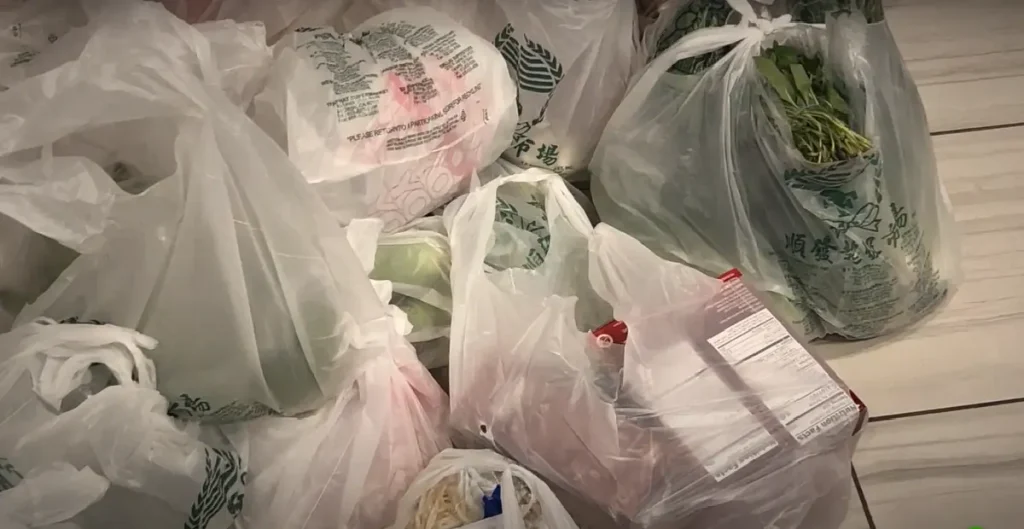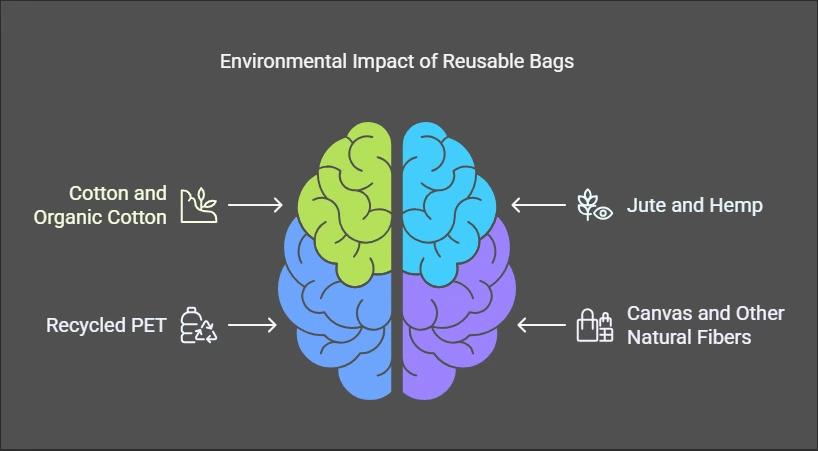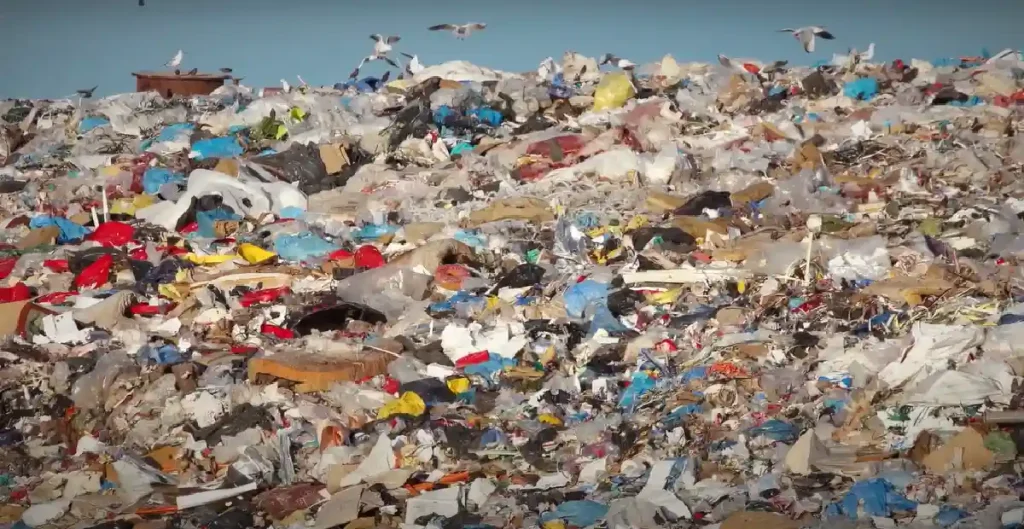Discover the Environmental Benefits of Reusable Shopping Bags and how they can transform your shopping habits while saving the planet. Are you ready to make a change?
One of the most common things that we use in our day-to-day life are shopping bags, but we often forget how harmful they are to our environment. The ubiquitous and single-use plastic bags add to the problem of mounting pollution, threatening marine life and ecosystems. Today, with so many bags ending up within landfills or perhaps seas, this matter demands to be dealt with much more seriously than ever.
Enter the Environmental benefit of Reusable Shopping Bags. Switching to reusable bags reduces carbon footprint significantly and helps people become sustainable. Such bags reduce waste and save resources, which becomes extremely important for humanity to overcome climate change. Switching to reusable shopping bags is a small yet impactful choice that can lead to a healthier world, and it is a decision that each one of us can take to help.
Table of Contents
ToggleUnderstanding the Environmental Impact of Single-Use Bags
Effects of Plastic Bags on the Environment
Single-use bags are bags that can only be used once and plastic bags are some of the most popular types of them and have an astonishing impact on the environment. Such bags do not readily decompose and will take hundreds of years, often breaking down into microplastics that pollute soil and waterways. Plastic can be mistaken as food for wildlife and once consumed; it can cause injury or death. More importantly, plastic pollution has an impact on the marine ecosystem by disrupting fish and other marine animals.
Effects of Paper Bags on the Environment
Although paper bags are frequently viewed as a more green option, they additionally have an astonishing eco-impact. Finally, paper bag production uses huge quantities of water and energy, increases deforestation, and raises greenhouse gas emissions. They take up landfill space if they are not recycled appropriately, as well. While they are biodegradable, their production does take a toll on the environment.
Landfill and Waste Management Challenges
Well, plastic and paper bags are still quite a challenge for landfills and waste management systems. Plastic bags are not recyclable in many parts of the world because they are so light that they get tangled in machinery and other issues at recycling plants. This means that they are normally disposed of in landfills, where they consume precious space. Indeed while paper bags are easier to compost, if they end up in our landfill, they will also be a part of the landfill waste. The groups of bags collected in the trash worsens the pollution crisis, and therefore need permanent solutions.
Carbon Footprint of Single-Use Bags
The production and disposal of single-use bags have a relatively high carbon footprint. Plastic and paper bag manufacturers release greenhouse gasses into the atmosphere, exacerbating the problem of climate change. Plastic bags are created using fossil fuels and paper bags are made after harvesting trees that need processing in mills. Switching to reusable shopping bags has the potential to significantly lower this carbon footprint and can provide a much greener alternative to consumers and the planet.
A call for change-American Environmental activity-The Case For Change-Single Use Bag Facts-The Tragedy of the Commons by Pollution-Understanding the Environmental Impact of Single-Use Bags To realize the Environmental Benefits of Reusable Shopping Bags, first, we should be aware of the disadvantages of common bags.
Environmental Benefits of Reusable Shopping Bags

1. Waste Reduction
Minimizing Landfill Waste
Reusable shopping bags reduce your contribution to landfills which is one of the greatest advantages. When consumers elect to utilize reusable bags rather than single-use bags, there is a drastic reduction in the amount of bags polluting our landfills. Such a transition will not only extend the functional lifetime of landfills, but also alleviate some of the environmental pressure from the quantity of waste that we keep generating.
Reducing Litter and Ocean Pollution
Reusable shopping bags to reduce littering and ocean waste. Plastic bags that are used one time most often end up as litter, littering our land and putting ecosystems in danger. This will limit the amount of plastic that heads into the oceans, which will ensure the animals are not harmed by plastic.
2. Conservation of Resources
Saving Petroleum and Raw Materials
Plastic bags are made almost entirely of petroleum, which is a non-reusable resource. The use of reusable shopping bags reduces the need for single-use plastic bags, resulting in a smaller consumption of petroleum and raw materials. It enables a more sustainable approach to managing the resources at an over-exploited site.
Reducing Water and Energy Consumption
Reusable bags are made with less water and energy than it takes to make a single-use bag over and over again. Consumers really help by using more durable reusable options which, in turn, can help make a drastic reduction in resource use and thus be a more sustainable lifestyle.
3. Lower Carbon Emissions
How Reusable Bags Reduce Carbon Footprint
The carbon emissions reduction is enormous with reusable shopping bags. When you use a reusable bag instead of a single-use bag, fewer resources go into production, transportation, and disposal. Less of a carbon footprint directly results from this decrease.
Comparison of Emissions Between Single-Use and Reusable Bags
Research indicates that over their lifetime, the carbon footprint of single-use bags far outweighs those of reusable bags. The carbon footprint of reusable bags is higher for production but lower for the total carbon cost of usage.
4. Protection of Wildlife and Marine Life
Prevention of Plastic Ingestion and Entanglement
Perhaps the most important of all reusable shopping bag benefits — saving wildlife. Animals that accidentally eat plastic bags or get entangled in them are at serious risk from these items. When consumers use reusable items instead, it helps avoid dangers to these animals and creates more healthy habitats.
Reduction of Harm to Aquatic Ecosystems
By using reusable shopping bags, aquatic ecosystems are being protected from plastic pollution. Less plastic litter in the rivers protects marine habitat and prevents fish and other creatures from harmful rubbish.
Using reusable shopping bags is not just solving the problems that are right in front of us. The Environmental Benefits of Reusable Shopping Bags are clear, making them an essential choice for environmentally conscious consumers.
Materials Used in Reusable Bags and Their Environmental Impact
1. Cotton and Organic Cotton Bags
Production Process and Environmental Benefits
Reusable bags are usually made of cotton or organic cotton. Unlike conventional cotton, organic cotton is grown without toxic pesticides or fertilizers. This manufacturing process is designed to be sustainable, employing techniques that minimize chemical runoff, and safeguard biodiversity. It helps the Environmental Benefits of Reusable Shopping Bags due to the fact that it cuts down pollution caused by traditional cotton growing.
Durability and Lifespan
As for cotton bags, they can be used for years if maintained properly. Higher longevity leads to creating lesser bags and therefore, reduction in total environmental impact. You get to use it for longer, which also backs up that cotton bags are a good sustainable shopping practice.
2. Jute and Hemp Bags

Biodegradability and Sustainability
The materials under consideration are natural fibers that bring particular sustainable advantages. The given products can degrade naturally which means that the described bags do not leave harmful residues. This feature is beneficial for eco-friendly customers who view the items as an outstanding choice from the point of the given benefits to buyers. Moreover, one can notice that the fact that hemp and jute bags improve soils and support ecosystems is one of the Soil and Ecosystem Benefits that cause their growing popularity. The crops do not require copious water and can be cultivated under changing acclimatization conditions. As a result, consumers seeking Environmental Benefits of Reusable Shopping Bags.
Soil and Ecosystem Benefits
In their turn, Recycled PET bags are an application of the recycled materials to the production of the described bags. Plastics used for the described products are commonly recycled fine plastic bottles or other articles that humans use. The growing popularity of the given items can be explained by the existence of high plastic wastes that can be used further for the creation of the bags. The difference between the items under consideration and other plastic-based solutions is visible, as the given products decrease the accumulation of the plastic waste in landfills or oceans. Therefore, another benefit to the buyers is associated with the possibility to use the items to Decrease Accumulation of Plastic Waste in Oceans and Landfills.
3. Recycled PET (rPET) Bags
Use of Recycled Plastics
Canvas bags are also a frequent application of sustainable benefits experienced by the buyers who use the other natural fibers. Moreover, it is not cost-effective to replace the given products with more durable solutions frequently, as the items can be used for a more extended period. Another sustainable benefit to customers is based on the necessity to use less energy for the production of the bags.
Lowering Plastic Waste with Recycled Materials
The environmental benefits of reusable shopping bags depend heavily on the materials chosen. With the help of informing us on how different materials impact the environment, consumers are now able to make better decisions aligned with sustainability and close the gap towards the Environmental Benefits of Reusable Shopping Bags.
4. Canvas and Other Natural Fibers
Strength and Reusability
Canvas bags are also a frequent application of sustainable benefits experienced by the buyers who use the other natural fibers. Moreover, it is not cost-effective to replace the given products with more durable solutions frequently, as the items can be used for a more extended period. Another sustainable benefit to customers is based on the necessity to use less energy for the production of the bags.
The environmental benefits of reusable shopping bags depend heavily on the materials chosen. With the help of informing us on how different materials impact the environment, consumers are now able to make better decisions aligned with sustainability and close the gap towards the Environmental Benefits of Reusable Shopping Bags.
Comparing Reusable Bags to Other Alternatives
Reusable Bags vs. Plastic Bags
Instead, the actual differences in the environmental impact of reusable bags versus plastic bags are striking. Plastic bags, which are often used only once for food shopping, account for a major portion of what ends up in landfills and our oceans. They can be hundreds of years to decompose, and create a terribly negative impact on wildlife and ecosystems. On the other side reusable bags are intended to be used again, and again will save most of the wastage of resources year after year. Consumers choosing reusable bags are making a step toward reducing plastic pollution, and are encapsulated in the Environmental Benefits of Reuse and Reuse Again: Reusable Shopping Bags.
Reusable Bags vs. Paper Bags
Although paper bags are frequently presented as a better environmental choice, they come with their own environmental complexity. Paper bags need a lot of water and energy to be made, and it causes deforestation. Moreover, if paper bags are not recycled, they will go into a landfill and still be a problem of waste management. Reusable bags, however, stack a significantly lower footprint overall. They contribute to reducing waste and use of resources over the long haul which only strengthens the Environmental Benefits of Reusable Shopping Bags vs. paper.
Life Cycle Assessment: Reusable vs. Single-Use
Life cycle assessments (LCAs) provide a holistic view of the environmental effects of various bag types. Research has consistently demonstrated that single-use bags, including both plastic and paper options, performed worse over their entire lifecycle than reusable bags. Even though reusable bags require more resources upfront to manufacture, the long-term replacement of several single-use bags makes their overall impact significantly lower. The Environmental Benefits of Reusable Shopping Bags This assessment emphasizes the Environmental Benefits of Reusable Shopping Bags, showcasing their contribution to sustainability and reduced environmental damage.
Choosing reusable bags is therefore a positive environmental choice and a way of encouraging the change we want in everyday life to become more sustainable.
Promoting and Adopting Reusable Bag Usage

1. Individual Actions for Environmental Impact
Tips for Incorporating Reusable Bags in Daily Life
For the everyday human, using reusable bags in their routine can be a game changer with the environmental impact! Here are some practical tips:
- Keep them in the car or by your front door so you remember to take them when you go shopping.
- To remain in your organized self, designate a bag for groceries and another for shopping.
- To reduce single-use plastic, opt for smaller reusable bags for items such as snacks or lunch.
Eco-Friendly Habits for Shopping and Storage
Adopting eco-friendly habits can further enhance the Environmental Benefits of Reusable Shopping Bags:
- Buy in bulk to reduce packaging and use a reusable bag wherever possible
- Keep reusable bags in places where you will need them within reach.
- Spread the word among family and friends about reusable bags and get them involved.
- The part of businesses and retailers
- Incentives for Reusable Bags from the Store
2. Role of Businesses and Retailers
Store Incentives for Reusable Bag Usage
Businesses can help encourage people to use reusable bags. Incentives like a discount, or loyalty points for customers who bring their reusable bag, helps induce a transition. Such little incentives eventually mount to great adjustments in conduct promoting sustainability culture.
Business Policies to Reduce Single-Use Bags
More retailers are rolling out single-use bag bans. This includes charging customers for plastic bags, motivating them to opt for reusable ones. Through the implementation of green practices in a more organized manner, companies can play a huge role in the Environmental Benefits of Reusable Shopping Bags by alleviating the harmful effects of single-use plastics.
3. Government Policies and Bans
Overview of Regional Plastic Bag Bans
Globally, governments are beginning to see the need for legislation to tackle plastic pollution. A number of areas have restricted the use of plastic bags or taxed them to the point where there is no option but to buy a reusable one. This is a key policy to encourage sustainable behavior.
Policies to Encourage Reusable Bag Adoption
Outside of outright bans, governments can also do things to encourage the use of reusable bags, like subsidizing campaigns that inform consumers about the benefits of reusable bags. Policymakers can increase awareness with additional resources to encourage consumers and businesses to adopt reusable bags with the overarching idea of enhancing the Environmental Benefits of Reusable Shopping Bags.
Together, this can become a movement toward a more sustainable future via the implementation and use of reusable bags, starting from individual actions and developing into a business drive and then have government support. Together, we can make a huge difference to our environmental footprint, help to create a healthier planet.
Long-Term Environmental Impact of Using Reusable Bags
Reduction in Overall Plastic Production
Reusing bags has one of the most lasting consequences environmentally in that it leads to the decreased amount of plastic being produced in the first place. With consumers changing to reusable they no longer want single-use plastic bags. Since that means less plastic to be produced, it diminishes the environmental burden of plastic production (fossil fuel use, as well as greenhouse gas emissions). Even when it comes to the process of production, by opting for reusable bags, people are helping reduce the environmental cost associated with the plastic process, which further emphasizes the Environmental Benefits of Reusable Shopping Bags.
Contribution to Sustainable Consumption
It shows we are part of the bigger picture of buying and consuming sustainably. Such a shift urges consumers to be more conscious about their consumption and the lifespan of the products they use. Using reusable bags means both less waste and less environmental impact! Once consumers switch to reusable choices, it creates a culture of sustainability and conscious living beyond shopping, it encourages people to be responsible consumers in every aspect of their lives. Aligning with the Environmental Benefits of Reusable Shopping Bags
Building a Zero-Waste and Eco-Conscious Society
Reusable bag usage is one of the key aspects to create zero waste and sustainable community. More and more people using reusable bags helps establish a pattern of waste reduction and environmental action. Together, this can effect great shifts in waste management practices and public attitudes toward sustainability. When a society values reusable solutions it is far more able to address more wide-scale environmental challenges, which could lead to new ways to reduce waste and conserve resources. Using reusable bags is an important first step towards Reusable Shopping Bags Environmental Benefits and a more sustainable world for generations to come.
To sum up, the long-term impact of reusable bags on our environment is tremendous. Reusable bags provide a practical solution to some of our deadliest environmental problems by reducing plastic production, encouraging sustainable consumption, and achieving a zero-waste society. And accepting this transformation is President and CEO, Barrett D. H. tells Sustainable Future.
Conclusion
There is no denying the Environmental Benefits of Reusable Shopping Totes. Reusable bags help consumers reduce plastic waste, lower their carbon footprint, and save resources. These bags help to prevent pollution, and they encourage consumption habits over a healthier Earth.
So as we discussed, using the reusable bag can reduce waste, saves energy & resources and helps to keep wildlife safe. Individual, business and government action is essential to creating a culture of sustainability.
As an appeal to people who care about the fate of our planet and urge everyone to stick to organic supplies, this document is aimed at popularizing reusable bags and encouraging sustainable consumption. This challenge represents our favorite joke: how many IT specialists are needed to change a lightbulb? The same number as in the answer above: “Disposable plastic bags and let everyone do their own thing.”
Frequently Asked Questions About Environmental Benefits of Reusable Shopping Bags
How Many Times Should a Reusable Bag Be Used to Offset Its Impact?
To offset its environmental impact, a reusable bag should typically be used at least 100 to 150 times. This usage significantly reduces the overall carbon footprint and resource consumption compared to single-use plastic bags. By reaching this threshold, the benefits of reduced plastic production and waste become evident, making reusable bags a more sustainable choice.
Which Materials Are Best for the Environment?
The most environmentally friendly materials for reusable bags include:
1. Organic Cotton: Grown without synthetic pesticides and fertilizers, organic cotton is biodegradable and durable, making it a sustainable option.
2. Jute: A natural fiber that is biodegradable and requires less water and chemicals during cultivation. Jute bags are strong and can last for years.
3. Hemp: Highly sustainable, hemp requires minimal water and no pesticides. It grows quickly and produces a durable, biodegradable material.
4. Recycled PET (rPET): Made from recycled plastic bottles, rPET bags help reduce plastic waste and lower the demand for new plastics.
5. Canvas: While heavier than other materials, canvas is durable and reusable, and it can be made from organic fibers for better environmental impact.
Choosing bags made from these materials helps minimize environmental harm while promoting sustainability.
How Can I Clean and Maintain My Reusable Bags?
To clean and maintain your reusable bags effectively, follow these simple steps:
1. Check Care Instructions: Always check the manufacturer’s care label for specific cleaning guidelines.
2. Regular Washing: Wash reusable bags regularly, especially after carrying food items. For fabric bags, machines wash on a gentle cycle with cold water. For non-fabric bags, wipe them down with a damp cloth.
3. Use Mild Detergents: Use a mild detergent to avoid damaging the bag’s material. Avoid bleach or harsh chemicals.
4. Air Dry: After washing, allow the bags to air dry completely. Avoid putting them in the dryer, as high heat can damage the fabric.
5. Inspect for Wear and Tear: Regularly check for any signs of wear, such as frayed edges or broken seams. Repair or replace bags as needed to ensure they remain functional.
By keeping your reusable bags clean and well-maintained, you can extend their lifespan and continue to enjoy their environmental benefits.
What Are the Economic Benefits of Reusable Bags?
The economic benefits of reusable bags include:
1. Cost Savings: Many retailers offer discounts for customers who bring their reusable bags, leading to savings over time. Additionally, using reusable bags reduces the need to purchase single-use bags frequently.
2. Durability: Reusable bags are designed to last longer than single-use bags, which means fewer replacements and lower overall costs for consumers.
3. Reduced Waste Management Costs: Communities that promote reusable bag usage can experience lower waste management expenses due to reduced landfill contributions. This can lead to savings on collection and disposal fees.
4. Boost to Local Economies: As demand for eco-friendly products increases, businesses producing reusable bags often thrive, creating jobs and stimulating local economies.
5. Potential for Tax Incentives: Some regions provide tax incentives for businesses that adopt sustainable practices, including reducing single-use plastic use.
Overall, the shift to reusable bags not only benefits the environment but also contributes positively to individual and community economies.





